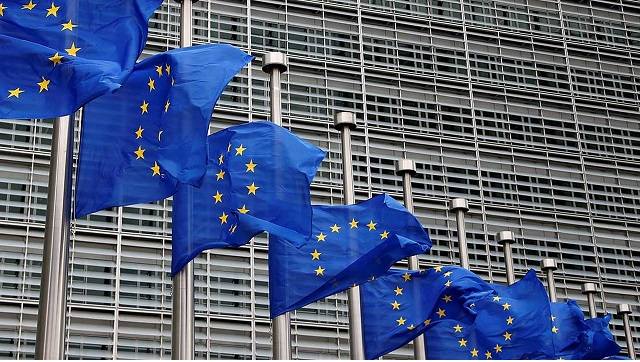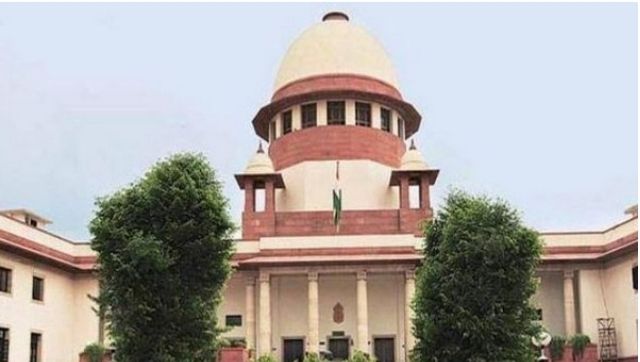Expanding the ambit of right to privacy and the right to be forgotten, the Supreme Court ordered its registry to work out a mechanism allowing details of an estranged couple be removed from search engines and the internet. A bench of justices Sanjay Kishan Kaul and MM Sundresh directed that the needful be done within three weeks so that the details of the parties are not visible on search engines, as per Bar and Bench. As per Hindustan Times, the apex court made the plea on the petition of an estranged wife who contended that the availability of the names, addresses and other personal information on the web violated her right to be forgotten which has been acknowledged as party of the right to privacy by the top court in its landmark 2017 judgment. A bench said her personal information, such as her husband’s name and residential address should either be deleted or masked from the judgment of her case on the SC website, from where it has been shared by different online platforms, as per The Print. The woman’s name is already masked, as per the report. But what is right to be forgotten? Let’s take a closer look: The right to be forgotten, also known as the right to erasure, was established in the European Union in 2014.
The right to be forgotten allows a person to seek deletion of private information from the internet.
In India, the Personal Data Protection Bill provides for a mechanism to implement this concept, though it is not an absolute right, as per The Tribune. While the right is not recognised by law, it has been described as a part of the right to privacy in the landmark 2017 Supreme Court judgment in the KS Puttaswamy vs Union of India case. In 2017, a nine-judge constitution bench headed by then Chief Justice JS Khehar ruled that “right to privacy is an intrinsic part of Right to Life and Personal Liberty under Article 21 and entire Part III of the Constitution”. As per The Print, the Supreme Court in its verdict had noted the existence of such a right. Referring to a regulation which had allowed the Unique Identification Authority of India (UIDAI) to retain authentication transaction data for six months and archive the same for five years, the court noted the infringement of such a right. “The right of the citizen to erasure of data or the right to be forgotten is severely affected by such regulation”, the Supreme Court said in its judgment. Since the Supreme Court verdict, several cases have been filed in high courts across the country demanding the right to be forgotten. High courts and the right to be forgotten The Delhi High Court is hearing a clutch of petitions regarding the right to be forgotten, while the Kerala and Orrisa high courts have also passed judgments relating to this right. [caption id=“attachment_9991491” align=“alignnone” width=“640”]  Representational image. Pixabay[/caption] Google India, speaking before the Delhi High Court on Thursday, argued that a blanket order cannot determine the width of the right to be forgotten, as per Live Law. The ‘right to be forgotten’ has various shapes and shades, that passing of protective orders would depend on the facts and circumstances of each case, Google India’s counsel argued in the high court, as per the report. Senior counsel Arvind Nigam, representing Google India, spoke of a 2021 decision of the Delhi HC in which an Indian-American citizen acquitted of charges under the anti-drug law asked for the judgment to be deleted online as he was unable to gain employment.
The individual was granted interim protection and the judgment deleted.
The Orrisa high court in 2020, hearing a case of intimate pictures being shared, used the old toothpaste analogy while calling for such a right, as per The Print. “In fact, the information in the public domain is like toothpaste. Once it is out of the tube one can’t get it back in and once the information is in the public domain it will never go away,” it had said. The Kerala High Court similarly in 2021 allowed deletion of such personal details from a Google search result, as per The Print. Indeed, the Centre in 2021 told the Delhi High Court in 2021 that the right to privacy has been recognised as a fundamental right in the KS Puttaswamy judgment (2017) and that the ‘right to be forgotten’ is evolving in India, as per Indian Express. Right to be forgotten abroad As per Indian Express, the EU in 2018 adopted the General Data Protection Regulation (GDPR), Article 17 of which provides for the right to erasure of certain categories of personal data — that which is considered no longer necessary, that for which consent has been withdrawn or processing of which has been objected to, personal data unlawfully processed, and data where there is a legal obligation for erasure. [caption id=“attachment_8544521” align=“alignnone” width=“640”]  Representational image. Reuters[/caption] However, the regulations limit the right to erasure in certain circumstances, including for reasons of public interest in the area of public health, for archiving purposes “in the public interest, scientific or historical research purposes or statistical purposes in accordance” and for “establishment, exercise or defence of legal claims,” as per the report. Russia in 2015 enacted a law that allows users to force a search engine to remove links to personal information on grounds of irrelevancy, inaccuracy and violation of law, while Turkey and Siberia have recognised it to ‘some extent’. Courts in Spain and England have also given verdicts on the subject, as per Indian Express. What was the case before the Supreme Court? As per Hindustan Times, the couple from Karnataka married in 2006. The woman, in 2016 complaint to the police, claimed that the husband had contracted a sexually transmitted disease before their wedding but concealed it from her. She said she contracted the disease as well and claiming her consent was fraudulently acquired by her spouse who hid her disease accused him of rape. The high court had stated that the law gave immunity to husbands on the offence of rape quashed the case. The woman then challenged the decision in Supreme Court, which rejected her petition. She later filed a new petition asking all personally identifiable details about her and the case be concealed. She said it is impossible for her to protect her privacy and live with dignity with personal details about her marriage, history of a sexually transmitted disease and other such information readily available on the internet. She said the information being out there was also causing mental trauma to her and to the couple’s child born in 2010, and said that keeping the husband’s name public too reveals her identity, as per the report. With inputs from agencies Read all the Latest News , Trending News , Cricket News , Bollywood News , India News and Entertainment News here. Follow us on Facebook, Twitter and Instagram.


)

)
)
)
)
)
)
)
)



